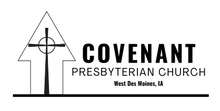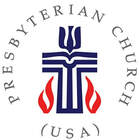|
Sunday, June 17, 2018 - Fourth Sunday after Pentecost
Scripture: Psalm 69:1-15, 30-36 Sermon: “Up to My Neck” The sermon did not get recorded this week. A manuscript version is below. I’m pretty lucky. I’ve only had one episode of deep depression. (I’m also prone to low-grade depression situationally.) This one episode that needed psychiatric care was when I was in college. It was triggered by an unrelated medication, and it came on fast - over several weeks. As is often the case, I didn’t look unhappy. Unhappiness is too big a feeling for depression, in my experience. Depression is usually more of an absence of feeling. As is often the case, I knew I was not okay, and I couldn’t do anything about it. I tended to fare better in the morning, and then in the evening the darkness crept in. So when I really needed help, I couldn’t call, because the health center was closed. One night, I wrote a note to myself - “Call the bleeping health center, you proud so-and-so!” - and set it on my computer for the morning. Later that evening, I was talking with my roommate Mike, and the note fell on the floor. Mike saw it and asked if I was sick. I explained. He understood. I was lucky. This depression was relatively easy to resolve. Mike helped make sure I called the health center the next morning, and I kept my appointment. (I knew Mike would hold me accountable if I didn’t.) At my intake appointment, we quickly identified the medication that had depression as a side effect. We stopped that medication. I also cut out alcohol and increased my exercise and other joyful activities. Mike and my other friends held me to it, and they offered me deep understanding. As my brain chemistry cleared, it was like I could suddenly see and breathe again. It felt like rising to the surface of a flood I barely knew I was drowning in. My minor mental illness is at the top of my mind after yet more news of high-profile deaths to suicide. Last week we heard about Anthony Bourdain and Kate Spade. Several weeks ago, it was my high school friend Matt. Surely there are other names and faces in your minds as I bring this up. It’s also on my mind as the city of Clive faces a controversy over locating a psychiatric hospital near somebody’s backyard. It’s on my mind any time I see someone swept up in a flood - a flood of emotions, of violence, of poverty, of racism, of sin. It’s on my mind even when the flood is “their own doing,” as if a lifeguard should let someone drown because they don’t belong in the water. Our scripture comes from a “flood” moment. The Psalm cries out to God when “the waters have come up to my neck.” It’s something many of us have known. We’ve found ourselves drowning in depression, fear, conflict, or grief. The power of the Psalms is that they name despair honestly (among other overwhelming feelings). There are often feelings we make “off limits” for ourselves. The Psalms show us that there’s room for this truth of our lives in the Bible. This Psalm is attributed to David, the great king of Israel. David had plenty of chances to write about being swept away. His story is full of violence and chaos, much of it self-inflicted. In the Psalms, David sets his conflicts and chaos in the context of his relationship with God. The best prayers call on God in the presence of our enemies. That’s faith. Perhaps this “enemy” language puts you off. David writes about enemies with swords and spears, but our enemies don’t have to be physically violent. I know that enemy within, who doesn’t allow me to make the smallest mistake. I know the one who feeds me the lie that nobody enjoys being around me, or they wouldn’t if I showed who I really am. I know how fear, doubt, and mistrust create enemies and fears around every corner: evil strangers and malicious friends. I know how threatening it is to speak the truth and trust God, because my truest enemy is the lie that I’m all alone and can’t depend on God. So maybe “enemy” is not the right language for you. Still, I invite you to let this Psalm speak faith in the face of whatever undermines your faith today. Notice that the Psalm turns to praise at the end. Almost universally, prayers of lament do this. That turn to praise reflects a special kind of faith. This praise is not just a happy ending, it’s a hard-won victory. It is deeply faithful to worship God even when our life suggests otherwise. Praise is a way to see God even in the midst of despair. Lament doesn’t end with praise because “now I feel better.” It ends with praise as a way of saying, “God is more true than my despair,” because God can save me from the waters that are up to my neck. Lament turns to praise because that’s one way we testify to God’s presence in the midst of the flood. That’s what faith is. God was present in my roommate Mike that night. He embodied the reality that God is greater than the flood. I needed someone else to hold that praise with me. There’s been a lot of moralizing talk lately about intervening with loved ones who are suffering depression and despair. You should, of course, but I’m not here to moralize. My gratitude for Mike is not meant to scold anyone who didn’t see or reach out. Besides, sometimes we reach out and our loved one still doesn’t come though. I will trust that you did what you could at the time. What’s more, I’m not interested in shifting the blame. Tragedies occur, and suicide is one kind of tragedy. We’re all victims in various ways. Today is not about moralizing, it’s about testimony. I received grace when my roommate showed up and stayed with me in the midst of my flood. And I offer that to you as an invitation. We may be the one to hold God’s presence before someone in the midst of their flood, when they can’t do it for themselves. That is what God does in Christ. Jesus comes into the flood of our life and lives God’s presence, within and beyond the flood. Thanks be to God, in Jesus’ name. Amen.
0 Comments
Leave a Reply. |
AudioCovenant's Sunday sermons and educational offerings are posted here. Blessings! Archives
July 2024
CategorY |
We Would Love to Have You Visit Soon!
|
Covenant Presbyterian Church 1025 28th Street West Des Moines, IA 50266-2124 Email: [email protected] Phone: 515.225.2254 |
Click here to donate to Covenant.

 RSS Feed
RSS Feed

